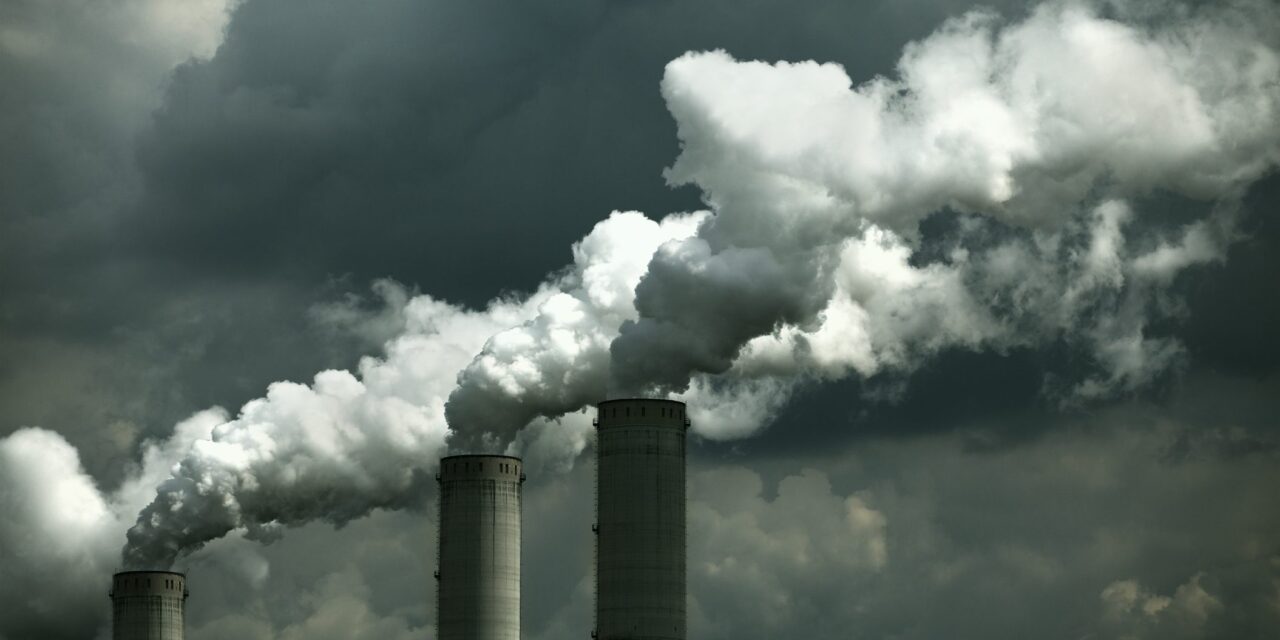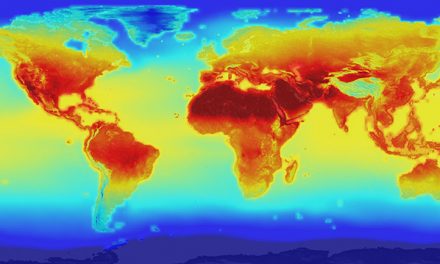John Frampton was the head of South Carolina’s Department of Natural Resources (DNR) until he resigned in March 2012. Shortly thereafter, the release of a study he championed regarding the effects of climate change on South Carolina was “delayed” even though he had pushed for its immediate release before he left the agency. The 102 page study prepared by DNR staff scientists recommended that the state do more to educate the public about the anticipated effects of climate change to the state’s environment. Yesterday he spoke out publicly about the state’s refusal to release the report, which specifically acknowledged the reality of climate change and the impacts it would have on South Carolina:
John Frampton, who left the Department of Natural Resources last year, said that the Earth’s rising temperatures will undoubtedly affect the state’s landscape and wildlife in coming years and that the DNR is well qualified to examine the impacts in South Carolina.
“I would liked to have seen the DNR be a leader,” Frampton said this week. “I would have liked to have positioned our staff … on this. We have experts in the agency” to assess climate change. […]
Frampton declined comment when asked if he had received any pressure not to release the study before he left DNR. A majority of the agency’s board members were appointed by Gov. Nikki Haley after her election in 2010 on a pro-business, jobs-first agenda. The DNR report was under way when Haley took office in 2011.
The draft report, a copy of which was only recently was obtained by The State, specifically noted that climate change was caused by human activity, and that the public needed to be made aware of the deleterious impacts coming their way.
The DNR’s draft study says that, with temperatures in the South projected to rise up to 9 degrees over the next 70 years, the Palmetto State should prepare for increases in wildlife disease, loss of prime duck hunting habitat and the potential invasion of non-native species such as piranha and Asian swamp eels. Many such exotic species have taken hold in Florida, but as temperatures rise, could move into South Carolina, the report said. […]
Among those serving on the 18-member DNR study group were seven PhDs, a climatologist and at least five other agency biologists.
“Scientists in all divisions of the DNR are concerned over the potential impacts of climate change on natural resources,” the draft report says. “DNR recognizes climate change as a real phenomenon, grounded in numerous scientific studies, and DNR recognizes that thoughtful and careful planning is needed in order to protect the natural resources of the Palmetto State and to benefit its citizens in the future.” […]
Bob Perry, a DNR official and the climate report’s editor, said completing the study isn’t a major point of emphasis now that his agency is under new leadership.
The article in The State also reported that Frampton retired in 2012 after conflicts with Caroline Rhodes, then the Chairperson of the Board that oversaw the Department of Resources. Rhodes had been appointed to her position by Republican Governor Nikki Haley. The DNR climate change study pre-dated the Haley administration. Although current DNR officials are claiming that the refusal to release the study is not politically motivated, it’s hard to accept their denials at face value. The report was on track to be released until Haley, a Tea Party favorite, was elected as South Carolina’s governor and appointed her own people to the DNR Board after assuming office in 2011.
The only logical conclusion is that her administration quashed the climate change report prepared by the state’s own scientists based on political considerations.
(cont.)
Former DNR chief Frampton’s refusal to comment on whether he was ordered not to release the report prior to his resignation speaks volumes. It isn’t that hard to connect the dots. Ann Timberlake, head of one of the leading South Carolina environmental groups, Conservation Voters of South Carolina, slammed the Haley administration’s refusal to release the DNR study on climate change.
“The science needs to be released. The public wants information they can trust.” […]
“It looks like there was a difference between (Frampton) and the board,” Timberlake said. “We have a huge amount of respect for the staff at DNR, but If the state has funded the report we need to see it in its entirety. Do they think the people of South Carolina can’t understand a scientific report?”
In The State article Gov. Nikki Haley said that solutions to climate change are what needs to be prioritized rather than causes. Timberlake did not disagree with that approach but added, “We need to talk about the science before talking about the policy,” she said.
By the way, a link to the DNR study, “Climate Change Impacts to Natural Resources in South Carolina,” can be found here. These are a few of the impacts the study addresses:
- Disruption of the timing of plankton blooming, which would effect food supplies for many marine species.
- Increase “dead zones” in the coastal waters off South Carolina.
- Create worse droughts.
- More saltwater in rivers, affecting fish species and possibly drinking-water supplies.
- Rising sea levels and coastal erosion.
- More floods.
- More disease that impacts shellfish and vegetation.
Haley has already indicated she wants South Carolina to eliminate as many regulations as possible to provide a “market-friendly regulatory system” and “get rid of government rules that hamper businesses.” This includes regulations regarding the environment, such as the requirement by businesses to obtain environmental permits from the South Carolina’s Department of Health and Environmental Control (DHEC). The head of the DHEC and the state’s Chamber of Commerce are both on board with “streamlining” the environmental permitting process. As for dealing with climate change, well …
Haley spokesman Godfrey said the governor believes the “focus of analysis should be less on the sources of climate change and more on the solutions.” Haley is concerned about the U.S. taking action on climate change in the absence of other major industrialized countries doing likewise, which could hurt the economy, Godfrey said.
Meanwhile, DNR board member Larry Yonce said he’s skeptical that global warming is the reason for recent warm winters in South Carolina.
Somehow, I don’t believe Nikki Haley and other South Carolina Republicans are all that interested in finding solutions to climate change in light of her emphasis on making South Carolina a “business friendly” state, and the fact that Governor Haley is ultimately responsible for refusing to release an important study on climate change prepared by the state’s own scientists. If she doesn’t even want to talk about the causes of climate change how will it be possible for her to implement any possible “solutions?” As her own spokesman indicated, she’s just not that into doing anything about climate change, period.





